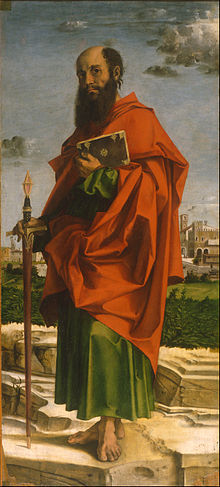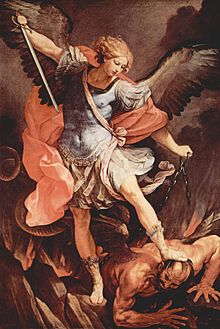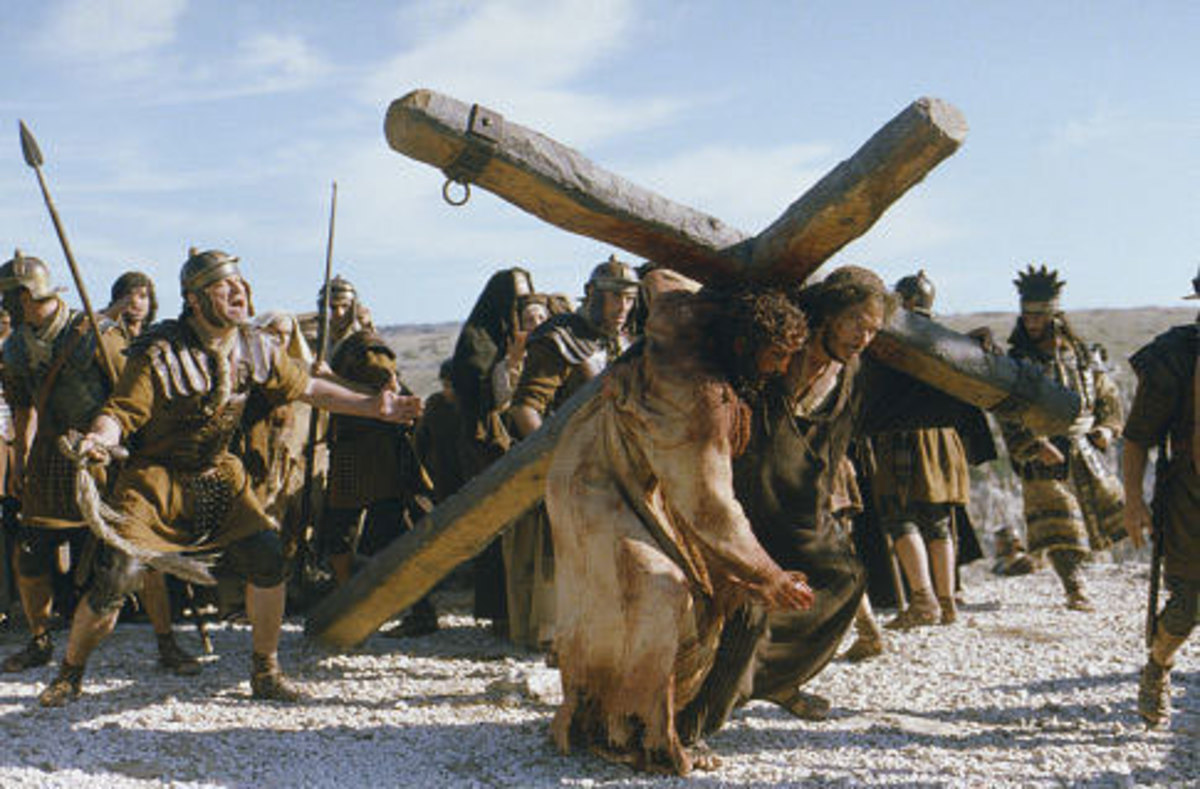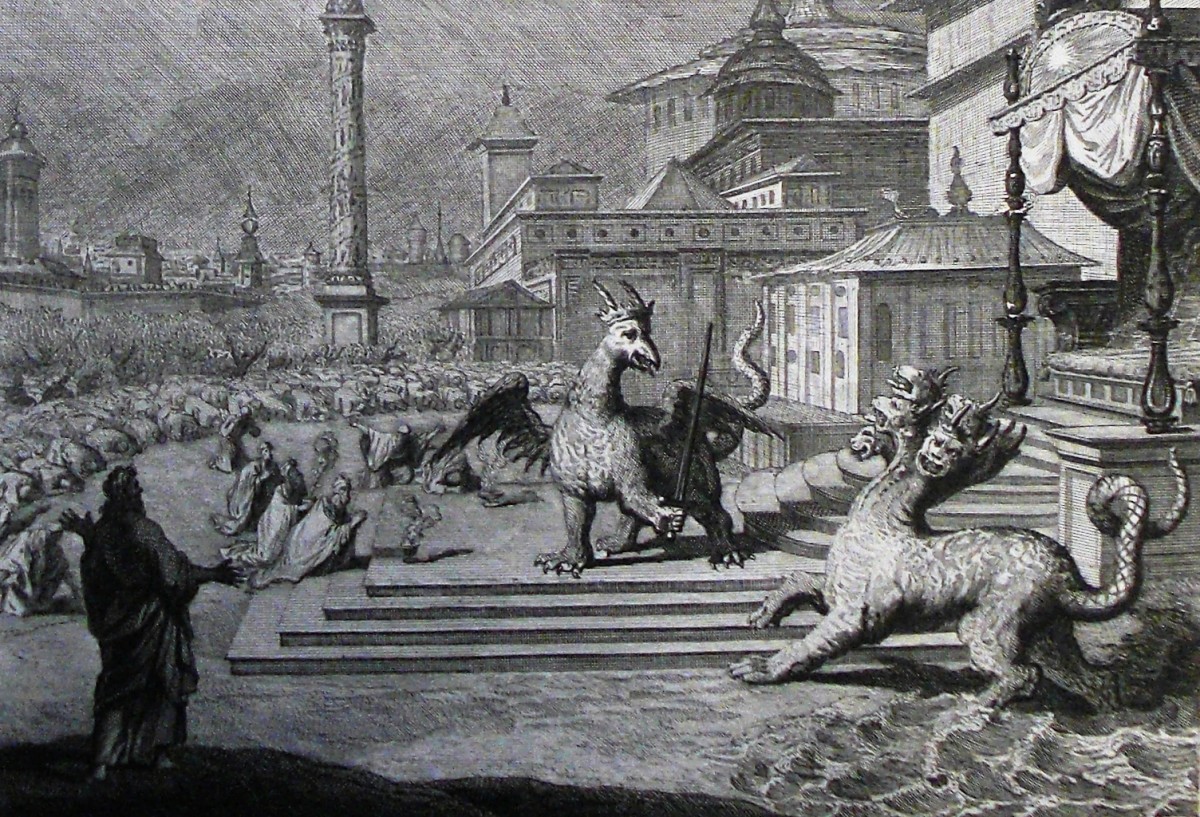Bible: What Does 1 Thessalonians 4-5 Teach Us About Sanctification, the Rapture of the Church, and the "Day of the Lord"
The Apostle Paul

Thessalonica, Greece

The Will of God
view quiz statisticsStrive For Holiness
Attaching the Lord’s authority to his final exhortation, Paul reiterates instruction that tells his readers to superabound (in love) [v. 1a; cf. 3:12].
He reminds the Thessalonians that they know how to live right, having received earlier divinely inspired commands from him (vv. 1b-2).
[Paul is constantly referring to the Thessalonians’ prior knowledge of various facts (cf. 2:1, 2, 5, 9-11; 3:3-4).]
In verses three through eight, the apostle specifically focuses on “the will of God,” emphasizing one critical aspect of being set apart to Him (sanctification): sexual purity.
Expressing his instruction on this subject with content clauses, Paul considers three ways in which believers can strive for holiness in this particular arena of life:
(1) They should abstain from all forms of sexual immorality (v. 3);
(2) They should apply Scriptural principles of self-control (vv. 4-5); and
(3) They should treat their brothers in the Lord with respect by not engaging in adulterous relationships with the latter’s wives.
Paul had already warned them that God would chasten them for this action (v. 6).
[Seemingly directed toward male believers alone, this teaching urges them to keep themselves from indulging in illicit or unnatural sexual activity.
To do so, they must apply their knowledge of how to possess their own vessel; that is, they have to practice principles of self-control and master their own body.
(Ryrie suggests that this expression may also point to having control of the marriage relationship, for “vessel” sometimes refers to a wife (cf. 1 Pet. 3:7) [New Testament Study Bible, 370]).
In other words, Christian men should not behave like wild, unregenerate Gentiles who do not know the character of God.]
Such “unclean” behavior contradicts the holy life that God has called believers to live (v. 7).
Even in this model church, Paul appears to single out certain ones who do not accept God's wisdom.
Regarding such cases, he points out that they are not repudiating him, but they are rejecting the One Who gave them His Holy Spirit to enable them to live right (v. 8).
On the subject of philadelphias (brotherly love), the apostle gives them no further information except to excel still more in this virtue.
Paul acknowledges that God Himself continually teaches them to show love for another, and that they have learned this lesson well (vv. 9-10).
Besides loving the brethren, he exhorts the Thessalonians to make it their ambition to live quiet, private lives, avoid the busybody label, and earn their keep by manual labor (v. 11).
By so doing, they will succeed in conducting themselves well among unbelievers, and they will have sufficient means to meet their temporal needs (v. 12).
[Notice the content clauses appear again.]
The Archangel

The Trumpet of God

The Rapture of the Church
Paul now turns to another pressing issue.
Not wanting his readers to remain ignorant of and start lamenting the “fate” of believers who have died before the Rapture (v. 13), the apostle enters into a discussion of eschatological issues (vv. 14-17).
He asserts that since Christ rose from the grave—it is clearer to translate the first class condition statement as “since” rather than as “if”—, God will also bring with Him the spirits of believers who died physically and resurrect their bodies (v. 14).
Another interesting observation is Paul’s statement that God will bring the physically dead saints’ spirits with Him.
[Is God the Father coming with Jesus, or is this statement a veiled reference to Christ’s deity?]
Paul’s formulaic prefacing remark (“For this we say to you by the word of the Lord”) signals that he is about to disclose special, divine revelation (v. 15a).
[When Paul makes a special announcement that God revealed to him what he is about to say, does that introductory statement make the subsequent revelation more important (or more inspired) than any of his other, more ordinary statements?]
The apostle declares the general idea that at His parousia Christ will resurrect the bodies of “the dead in Christ” before He deals with those who are living (v. 15b).
Having “descended from heaven,” He will appear in the earth’s atmosphere (“the air”) [cf. Eph. 2:2, 3]; three sounds will accompany His coming: a shout, the voice of an archangel, and a blast from the trumpet of God (v. 16a).
He will resurrect “the dead in Christ” first (v. 16b), and then “rapture” living Christians together with them, transporting both assemblies to His location in the atmosphere (v. 17a).
Paul desires that they would use this knowledge of their subsequent eternal union with Christ to comfort one another (vv. 17b-18).
The Church and the Tribulation
Do you think the Church will go through any part of Daniel's "seventieth week"?
The Day of the Lord
I Thessalonians 5
Although he notes that the Thessalonians did not need further instruction on the issue of “the times and the seasons,” the apostle now considers this aspect of eschatology (v. 1).
Again, he points out something that they already knew perfectly well: that “the day of the Lord” will come unexpectedly (“as a thief in the night”) [v. 2].
[Ryrie provides an extended definition of the technical term—“the day of the Lord.”
In short, this “day” covers the period from the tribulation through the millennium (New Testament Study Bible 371).]
An unspecified people—“they” (perhaps Israel or the world in general)—exclaim the arrival of a time when hostilities between nations have ceased and international security has been achieved (v. 3a; cf. the false peace of Daniel 9:27).
Unexpectedly, inescapable destructive forces assault them; Paul compares their intense anguish, not their destruction, to a woman’s labor pains (v. 3b).
[A relative peace reigns on the Earth during the first three and one-half years of Daniel’s seventieth week (of years); at "mid-week" the Roman beast begins to intensify his persecution of the Jews.]
Addressing his brethren (fellow Christians), he informs them that the sudden destruction will not surprise them, because they are “sons of light and sons of the day” and “are not of the night nor of darkness” (vv. 4-5).
[One can interpret this passage to mean that since Christians will know that the Day is coming, its arrival will not take them by surprise.
One may also understand it to mean that since they are not “in darkness,” they will not fall victim to the destruction that will occur during this period.
On the one hand, one interpretive group (the amillennialists) assumes that the Church will experience the wrath of Antichrist during the Great Tribulation, because Christ will not rapture them until His Second Coming to earth.
On the other hand, premillennialists understand that she (Church-age believers) will escape the persecution and judgment altogether, because the Bridegroom will rapture His bride before the tribulation occurs.
The student must consult the whole of Scripture, not just one passage, to determine which view is correct.
This commentary holds to the latter interpretation that sees Christ removing the Church out of the world before the beginning of Daniel’s seventieth week.]
The Church and God's Wrath
Will God pour out His wrath on His Church?
Discipleship in Light of the Future
As enlightened believers, they know that this terrible time approaches; consequently, Paul admonishes them to respond with vigilance and self-control.
They should not allow themselves to be lulled into moral slumber or to manifest a wild, dissipated lifestyle (vv. 6-7).
On the contrary, Christians should exhibit a serious attitude toward life; they should discipline themselves mentally and spiritually to fight against the forces of “darkness.”
Paul tells them that they should prepare their hearts and minds for the battle (v. 8; cf. Eph. 6:10-20).
God appointed Church believers to receive salvation; they will never experience His wrath (v. 9).
[The Great Tribulation consists in the pouring out of God’s wrath upon “those who dwell upon the earth”; Jesus’ redemption exempts blood-bought Christians from enduring His fury.]
The truth that Christ’s finished work on behalf of all believers ensures that they will live with Him in glory should encourage them and build them up in the faith (vv. 10-11).
The Sovereign Control of God

Needed: Respect and Love
view quiz statisticsExhortations and Admonitions
Now the apostle turns to final sections of exhortation and admonitions (vv. 12-22 and vv. 23-28 respectively).
First, he delineates a long list of instructions that they should follow.
To start, he urges them to show proper respect and love for their pastors and teachers (“those who labor among you, and are over you in the Lord and admonish you”) [vv. 12-13].
Second, Paul encourages them to demonstrate righteous church discipline upon the insubordinate (“warn those who are unruly”) and to exercise patient pastoral care upon the spiritually (or physically) weak (v. 14).
Third, the apostle exhorts the leaders to prevent believers from taking revenge on others, and to seek peace and reconciliation among all members of the body (v. 15).
Fourth, he commands them to obey God’s will by exhibiting a joyful, prayerful, and thankful attitude about everything at all times (vv. 16-18).
[These exhortations presuppose God’s sovereign control over every aspect of life; by obeying these directives, believers demonstrate their trust in Him.]
Fifth, Paul admonishes them not to stifle the Spirit’s ministry among them through unbelief (v. 19).
Sixth, he instructs them not to treat the words of their preachers with disrespect; instead, they should examine their soundness and adhere to the instruction that passes the test of Scripture (vv. 20-21).
Seventh, Paul commands them to avoid all appearances of evil; that is, do not even get close to participating with someone in doing something of unseemly character (v. 22).
With his final words to the Thessalonians in this first epistle, Paul prays that God, the One who brings peace to the hearts of believers, would completely set them all apart for His service, and keep their entire beings wholly innocent in preparation for the Rapture (v. 23).
Assured of God’s faithfulness to His people, the apostle knows that the Lord will accomplish this objective (v. 24).
He asks them to intercede before God on his behalf, to treat each another with genuine affection and warmth, and to read his epistle to everyone in the assembly (vv. 25-27).
At last, Paul calls upon Christ to shower His grace upon them (v. 28).
Study Questions for 1Thessalonians
1. Who joined Paul on the apostle’s second apostolic journey? Whom did he replace, and why?
2. What three specific character qualities did these saints manifest?
3. What is another name for “the wrath to come”?
4. How did Paul defend his ministry to the Thessalonians?
5. How did the apostle and his associates conduct themselves among these local church members?
6. Whom did Paul decide to send to this church as his representative?
7. What specific item does Paul focus upon as the “will of God”?
8. What are the three ways Paul considers how believers can strive for holiness?
9. What does the infinitival phrase “to possess your own vessel” mean?
10. With what virtue does Paul say that the Thessalonians excel, and what does the apostle advise that their ambition should be?
11. Give the sequence of events associated with the Rapture.
12. What is “the day of the Lord”?
13. What evidence from this passage and others can you offer in your argument for the pre-tribulation Rapture?
14. What are the seven exhortations/admonitions that the apostle leaves with the Thessalonians?
15. What do proponents say 1 Thessalonians 5:23 teaches?
© 2014 glynch1







